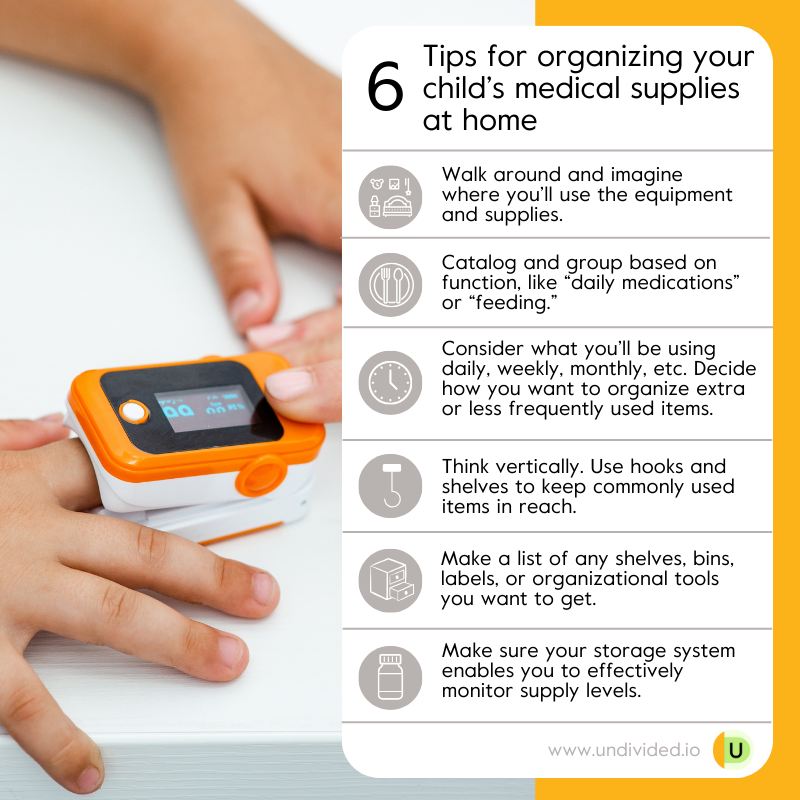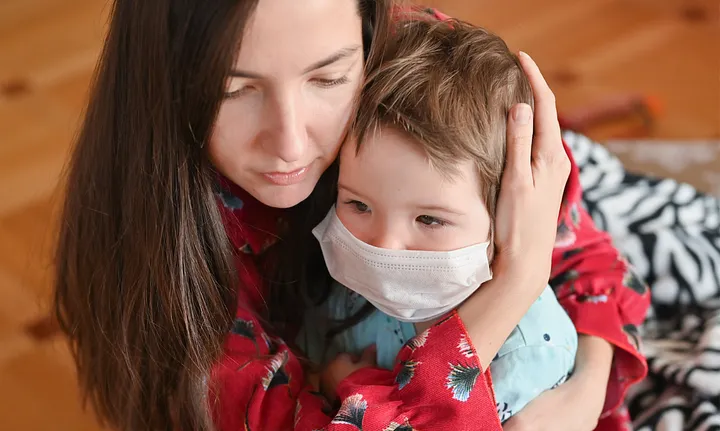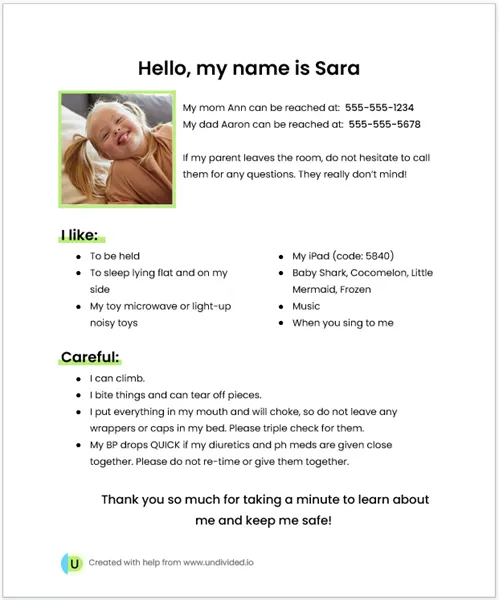Navigating an extended hospital stay for your child, and figuring out what to do when you finally get home, can be incredibly tough for anyone. And when your child is medically complex, it can add a whole new layer of stress and uncertainty — especially when you’re trying to process a new diagnosis, navigate hospital staff and resources, take care of your own needs, get training on supplies and equipment before discharge, organize your home, and more.
Whether your child has stayed in the hospital before or you’re a new parent trying to survive your baby’s stay in the NICU, we know that trying to figure out what to do, who to ask for help, and what comes after discharge when you take your child home can feel like A LOT — physically, mentally, and emotionally. But you’re not alone. Medically complex kiddos usually require a high level of daily medical care, but that doesn’t mean you and your family have to live in a bubble for the rest of your lives.
“Be kind, let yourself feel the things, then pick yourself up and move on to the next day. I would never say it’s easy, but you’ll get there, right? Like, I’m smiling now and I’m working for a company that helps other families and I love being the mom of my medically different children. But five, six years ago, when she was born, I was a puddle of tears, not knowing which way was up, not knowing what to expect, [thinking,] ‘How do I do this? Am I going to be able to do this? How do people do this?’ It’s been a long journey but it’s so worth it.” — Heather McCullough, Undivided Navigator
Here’s your guide to preparing for and coping with your child’s hospital stay(s) and that feeling of “what do I do now?” once you all go home together — with tips and insights from experts such as parents, doctors, and special education advocates.

Parenting in the hospital can take us out of our comfort zone, literally, especially when it’s an extended stay. But there are many things you can do to feel more in control, make the stay as comfortable as possible for you and your family, and still play an active role in your child’s care. From hospital go-bags, to participating in your child’s daily care (even in the NICU), to all the things you need to be trained in before discharge — we cover this and more in our article How to Prepare for Your Child’s Extended Hospital Stay.
Check out our article for a printable template for the hospital room:
Heading home from the hospital with a medically complex child can be an equally joyful and terrifying experience for families. It may be a relief to take your child home, but what comes next? Easing into the transition can feel intimidating; that’s why we’ve talked to experts and parents alike (the really experts!) to help with that overwhelm. Find our tips and resources to help you prepare to return home, including finding a pediatrician who understands your child’s medical needs, picking up prescriptions and monitoring refills, ordering necessary equipment, exploring public benefits and in-home nursing, having to explain what’s happening to family and friends, and more, in our article Supporting Medically Complex Kids at Home.

Check out these additional articles to help your support your medically complex child, yourself, and your family, from the hospital to the home:
Knowing how to communicate with hospital staff and advocate for your child can help your experience be a bit less stressful. As Heather tells us, “I ended up having to have a lot of heart-to-hearts with the team, saying, ‘Hey, we’re all part of this team. We all care for this baby. Let’s communicate. Let’s work together. I have questions. I know I’ve asked this a million times, but I need to ask it one more time.’” — Tips for Advocating for Your Child with Hospital Staff
Adjusting to a “new normal” will likely take some time, especially coming from the hospital or adjusting to a new diagnosis. Connecting with others and finding support can make a big difference. Undivided Navigator Gabi tells us that telling people about her child’s diagnosis has been empowering for everyone involved: “I can’t even verbalize what a difference it has made for peers and cousins to understand her diagnosis and what her struggles are, and how much more aware, understanding, and encouraging they have been to include her or offer ways to support her so that she can join in with their help. It has really been eye-opening for them, empowering for my daughter, and amazing to see how much others truly care about her being able to join in.” — Tips on Going Home from the Hospital with a New Diagnosis
In-home nursing may not be the easiest resource to secure, but we have some tips as you navigate the process. As Heather tells us, “Sometimes personalities don’t mesh well, and that’s okay. You can ask the agency to send more nurses to interview if you don’t mesh with a nurse. Assuming the nurse seems to be a good fit, you’ll want to discuss experience and skills. Have they had any patients in the past with your child’s diagnosis? Are they knowledgeable? I try to stay away from anyone who seems stuck in their ways. Each child is different, and a good nurse will be able to adapt to that family’s ways of doing things for that child’s individual needs.” — How to Navigate In-Home Nursing for Your Child
Did you know that most hospitals have child life specialists who are there to help kids and families cope with the stress, uncertainty, fear, and anxiety that can arise during hospital stays, medical experiences, and more? “ “We are there to help guide the parents and children through the experience in ways that they can understand,” Rachel Delano, certified child life specialist (CCLS), explains. — Child Life Specialists 101
One Undivided member shares with us,“It’s a breath of fresh air knowing a community I can connect with.”

Office Hours with Lisa Concoff Kronbeck
On Wednesday, March 6, 12:00–1:00 p.m. PST, Public Benefits Specialist Lisa Concoff Kronbeck will be available for Undivided Office Hours, where she’ll answer questions about funding therapies and medical supplies through Medi-Cal, Regional Center, and more. Stop by for five minutes or the whole hour to get expert answers and connect with other parents. Bi-weekly Office Hours are virtual Q&A sessions with experts that are open to Undivided members only, so sign up for a free Kickstart if you’d like to attend!

- How do you collaborate with your child’s doctors, nurses, and specialists? Check out “Undivided Conversations: How to Build a Care Team” on YouTube→
- Need recommendations for adaptive equipment, therapy providers, and more from parents who get it? Ask in our supportive Facebook group→
- When we say “Sign up for a free Kickstart,” what do we mean? Learn what a Kickstart is in this Instagram reel→
- Join us in our mission to share resources that support families raising kids with disabilities! Connect with us on LinkedIn→
- Keep all those medical and insurance documents organized in your digital super binder — and share them with your care team at the touch of a button. Start here→
This newsletter was originally sent to our subscribers on 2/12/24. Subscribe to our newsletter to get more resources like this in your inbox, and check out our full library of articles, templates, and videos at undivided.io/resources.




























